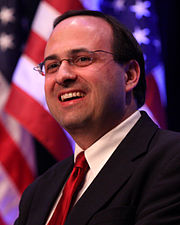On August 1, 1834, Great Britain’s Slavery Abolition Act 1833 took force, freeing slaves throughout the British empire.
Technically, it freed slaves under the age of six. On the August 1 date in 1838 and 1840, the rest of the empire’s slaves were freed, practically speaking.
August 1 births include Francis Scott Key (1779), composer of the poem “The Star-Spangled Banner”; American authors Richard Henry Dana, Jr. (1815) and Herman Melville (1819); and Thomas E. Woods, Jr. (1972), historian and popularizer of Austrian economics.

 On July 31, 1703, Daniel Defoe — who would later become famous as the author of “Robinson Crusoe” and other literary works — was placed in a pillory for the crime of seditious libel. The sedition pertained to a satirical pamphlet he had published, “The Shortest-Way with the Dissenters; Or, Proposals for the Establishment of the Church.” The mob pelted him with flowers.
On July 31, 1703, Daniel Defoe — who would later become famous as the author of “Robinson Crusoe” and other literary works — was placed in a pillory for the crime of seditious libel. The sedition pertained to a satirical pamphlet he had published, “The Shortest-Way with the Dissenters; Or, Proposals for the Establishment of the Church.” The mob pelted him with flowers. On July 30, 1980, the Pacific Islands nation of Vanuatu gained independence — it had previously been a French-English colony, New Hebrides — with foreign government aid from a variety of First World nations, placing as prime minister the very statist Walter Lini. Lini’s first act was to send troops to crush the Nagriamel secessionist movement on the island of Espiritu Santo, imprisoning its leader, Jimmy Stevens (pictured), in August.
On July 30, 1980, the Pacific Islands nation of Vanuatu gained independence — it had previously been a French-English colony, New Hebrides — with foreign government aid from a variety of First World nations, placing as prime minister the very statist Walter Lini. Lini’s first act was to send troops to crush the Nagriamel secessionist movement on the island of Espiritu Santo, imprisoning its leader, Jimmy Stevens (pictured), in August. On July 16, 1931, Ethiopia’s Emperor Haille Selassie I signed a new Constitution. Not exactly a model of classical liberal limitations on government, the new document proved that the emperor was in keeping with the time, which was a period of weakening constitutional limits in America, Europe, and Britain. A flavor of the document can be gained by its most “rights-oriented” measures:
On July 16, 1931, Ethiopia’s Emperor Haille Selassie I signed a new Constitution. Not exactly a model of classical liberal limitations on government, the new document proved that the emperor was in keeping with the time, which was a period of weakening constitutional limits in America, Europe, and Britain. A flavor of the document can be gained by its most “rights-oriented” measures: On July 11, 1977, Martin Luther King, Jr., was posthumously awarded the Presidential Medal of Freedom.
On July 11, 1977, Martin Luther King, Jr., was posthumously awarded the Presidential Medal of Freedom.